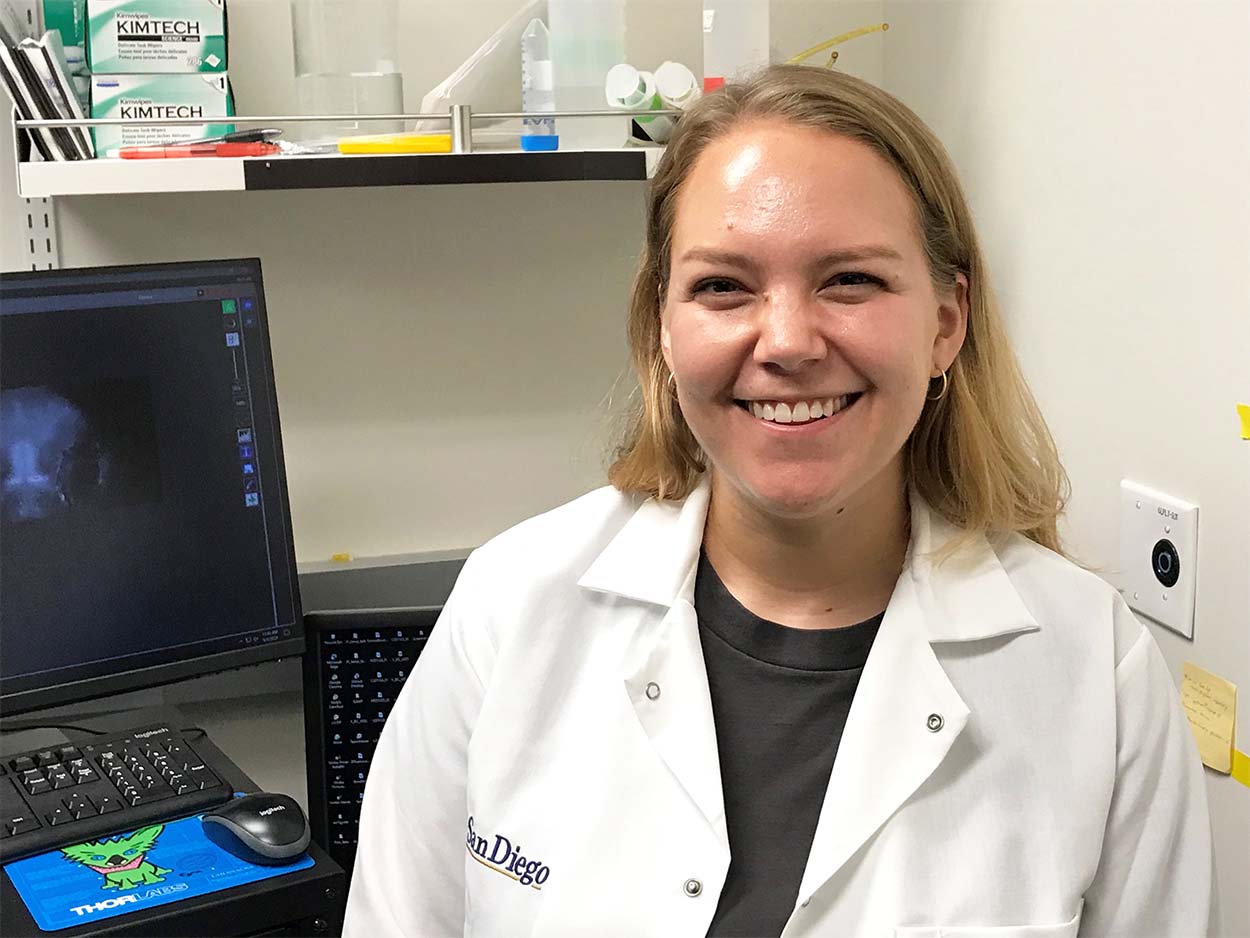Katie Martin Named 2024 Helen Hay Whitney Fellow
September 20, 2024
By Mario Aguilera
The Helen Hay Whitney Foundation has selected UC San Diego School of Biological Sciences Postdoctoral Scholar Katie Martin as a recipient of a biomedical fellowship.

Katie Martin
The three-year Helen Hay Whitney Fellowship was created to support early postdoctoral research training. The list of 2024 Fellowship recipients includes researchers from across the country based in universities, medical schools, cancer centers and children’s hospitals.
Martin, who has been a postdoctoral scholar at UC San Diego since 2023, conducts research in the lab of Assistant Professor Matthew Lovett-Barron in the Department of Neurobiology. The Lovett-Barron lab examines the brain and behavior of small translucent fish to understand how nervous systems adapt to changing circumstances, including environmental changes, physiological needs and social context. The lab recently uncovered the roots of group behavior and social maturation in the brains of schooling glassfish, which use vision to coordinate their social swimming behavior.
Martin is using behavioral quantification, genetic manipulation and large-scale functional imaging in zebrafish larvae to investigate how hunger adjusts sensory perception, decision making and action selection.
The Helen Hay Whitney Foundation says the most critical and long-lasting investment in the research enterprise is the development of career scientists who contribute through both their own research and, eventually, their training of future generations of scientists. “Whitney Fellows have gone on to become some of the most highly regarded medical and scientific professionals in their respective fields, and have served as mentors to succeeding generations of scientists,” the Foundation noted.
The Helen Hay Whitney Foundation was established and endowed by Mrs. Charles S. Payson, the former Joan Whitney, in 1947, and named in honor of her mother, Helen Hay Whitney. Originally established to stimulate and support research in the area of rheumatic fever and rheumatic heart disease, the Foundation later expanded its interests to include diseases of connective tissue and, ultimately, all basic biomedical sciences.
— With information from the Helen Hay Whitney Foundation
